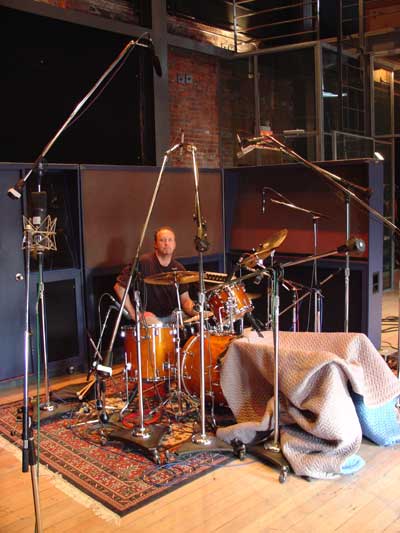Studio Drummer – Find that Relaxation Focus
*ANOTHER TECHNIQUE I USE IN THE SAME CIRCUMSTANCE IS TO GET MY HEAD INTO THE CHART MORE.*
I know this normally is looked at as a negative and can be a negative in other contexts but wait! Hear me out.
Again, you may not necessarily need to get more inside the part as it may be very simple but try it. Sometimes you need to divert your mind.
It’s as simple as that. Your head is obsessing about something too much due to the pressure of the situation.
It’s another trick that helps you to just play.
I find that this mindset happens less on more musically complex sessions because you don’t have the physical time to deal with these mind issues! You’re too busy catching everything on the chart and around the kit. But all these tricks can be very useful.
Another mental trick that sounds overly simple is this.
*THINK OF SPECIFIC THINGS OR THOUGHTS THAT ARE RELAXING TO YOU.*
This sounds silly but it also works well from my experience.
For me personally I used to think about my kids at moments like this. It’s fleeting no doubt but these little moments help you to move towards relaxation and can at the very least get you through a passage or a phrase in a tense moment.
*IT’S AN EXERCISE IN CONTROLLING YOUR EMOTIONS UNTIL YOU REACH THE POINT WERE YES, THE SESSION AND YOUR MOOD ARE RELAXED, THE CLIENT IS HAPPY AND THERE IS TRUE SYNERGY IN THE ROOM.*
Lastly, but of great importance;
*DON’T FORGET TO BREATHE!*
It’s easy to start holding your breath or at the very least, not to be breathing properly in these situations. Oxygen flow is also very important to relaxation and ensuring the right outcome!






